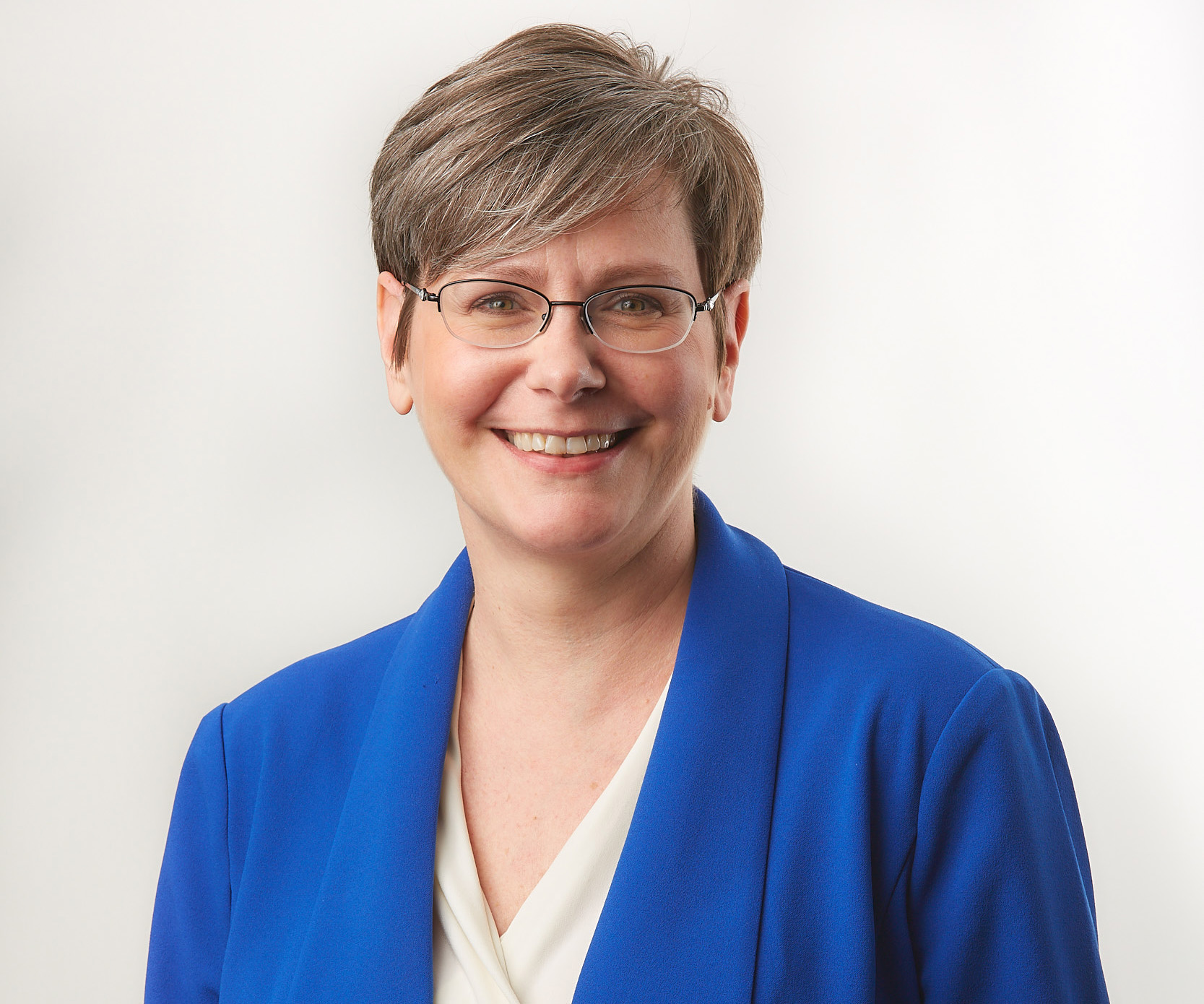As the promise of 2021 looms on the horizon, most people are anxious to close the books on what is likely the most unsettling year — from the pandemic to politics to PPP loans — we will ever experience. Strong leadership has never been more essential than it is today. To share their best leadership practices, Az Business magazine sat down with Arizona business leaders to watch in 2021, including Cathy Graham, executive vice president at Desert Financial Credit Union.
Cathy Graham brings a unique blend of creativity and strategy to marketing and brand loyalty. Her tenured expertise in the credit union movement grew from a passion for the not-for-profit mission that drives community engagement.
Here is the full transcript of the interview with Cathy Graham
Az Business: Can you tell me a little bit about the impact that COVID has had on Desert Financial?
Cathy Graham: I think we had some really great plans at Desert Financial for 2020, and then COVID hit. That’s everybody’s story this year. I was doing this and then COVID hit. And so, at a certain point we were making some really big plans on our strategy for the future, what we were planning to do. And at one point we were having a conversation and somebody said, “Should we stop our strategic efforts? Should we pause that?” And we thought, no, we really need to keep focused on where we’re going, but at the same time we need, we need to identify who’s going to keep focused on the future and who’s going to help us respond to this crisis.
So, it was actually great to see we could both focus on responding to a crisis and taking care of people and thinking about the future, because we didn’t want to come out of COVID having just stopped thinking about where we’re going and how we’re going to get there. And so I think that’s really been a lifesaver for us.
Az Business: One of the things that’s always impressed me about your company is the culture and how much the people that work there like working there. How were you able to maintain that culture through the challenges that COVID brought?
Cathy Graham: I think in terms of the challenges that COVID brings and retaining a good culture, it’s tough when you’re remote. But we made special efforts to be purposeful and stay connected to people. So in May, we did a virtual fundraising with our employees, and we had Pat McMann MC it, and he is so great and warm and funny. And we did lip sync battles among our SMT members. I may or may not have been involved in a lip sync battle, but the point of it was to bring people together, even if it’s virtually, it was a fundraiser for our own internal taking care of our own fund. And that’s a fund that helps employees that are experiencing financial difficulties. So, it was to help each other and to connect with each other. And so just doing things like that really helped.
Az Business: One of the other things that I really admire about your company is the community impact that you’ve had. Can you talk a little bit about what you did in the community during COVID and also some of the efforts that you’ve made that impact on the community that you serve here?
Cathy Graham: I think giving back to the community as part of the DNA of Desert Financial. I’ve been with the credit union for 14 years, and I’ve truly never worked for a more mission driven company. So, when you think about COVID and this need to respond to the crisis in terms of a business continuity perspective, you think that’s really where our focus needs to be. We need to make sure that we’re keeping the lights on. But we really doubled down on our focus to give back. And we really have three main groups that we give back to.
So, it’s our community. We work with dozens of nonprofits across the Valley. It’s our members who experience financial difficulty because of COVID. And it’s our employees. So, I mentioned that taking care of our own fund. That’s something that we do to help our employees, even though we were fortunate to not to have to lay off people or furlough people, we knew that they might have a spouse or a partner at home who may have been in that situation. So, they may be experiencing financial difficulty.
So, how do we stand in the shoes of our employees and help them? How do we stand in the shoes of our members who may have been laid off? And now they’re worried about making their mortgage payment or their auto loan payments. How do we stand in the shoes of the people that work at the local food banks knowing that our grocery stores were being decimated by people who were … We were all just trying to figure out what, “What do we do?” I need to make sure I have food for my family. And so the food banks were suffering. And so how do we step up and help them? So it really was, in COVID, a proof of concept of our strategy, which is to take care of people and that will take care of our company.
Az Business: Is there anything that surprised you with any of those efforts that you did?
Cathy Graham: I think the thing that’s surprised us about how we were able to respond during COVID is how we were able to respond in a really short amount of time. If you would have told our senior leadership team a year ago today, “Hey, in six months, you’re going to do all these things.” We would have told you, “That’s going to take us three years. There’s no way we’re going to be able to step up and help our employees and our members and our community and deploy our back office team remotely and figure out a new delivery model in our branches. There’s no way that’s going to happen in two months, three months, six months.” But it just shows that when everyone’s focused on the same thing, boy, we sure found a way to get it done.
Az Business: Can you talk a little bit about your leadership style and how it works well with Desert Financial’s culture?
Cathy Graham: I think in terms of my personal leadership style, I’m the kind of person who doesn’t like to be micromanaged. So, I like to operate that way as well with the people that I work with. But I think what defines my leadership style is constantly pushing myself and pushing others to grow and learn. So, we talk a lot about everyone has a comfort zone and it’s a circle and that’s where you’re comfortable and that’s where you’re knowledgeable and you’re great. That’s why it’s your comfort zone, because you’re an expert in your comfort zone. But I think what I try to do is push myself outside of my comfort zone and the people that work for me.
I try to push myself outside of my comfort zone and the people that work with me and for me outside of their comfort zones. And then what happens is your comfort zone gets bigger and bigger and bigger, but we always joke that if you go outside of the comfort zone, it’s the learning zone. You go too far outside of the learning zone, it’s the freakout zone. And I don’t want to push myself or anybody into the freakout zone. But how are we constantly stretching and learning and growing and getting comfortable with being uncomfortable?
Az Business: What are some of the lessons that you learned that might make you a better leader or a stronger leader?
Cathy Graham: I think in terms of being outside of your comfort zone, especially COVID, we all were out of our comfort zones. Nobody had done this before. I think one of the big takeaways for me was having conversations with team members, whether it was the retail team, or our branch folks that report up through me, or some of our folks in our back office areas, and saying, “This is what we’re going to do. We might get it wrong. It’s okay. Based on what we know right now, we think this is a good plan. What are your thoughts and concerns? But if we stumble, it’s going to be okay because we’re going to learn from that and we’re going to adjust.”
So, I think just giving people permission to be imperfect when we’re all just trying to figure it out was really helpful because we truly had to make so many changes and people were afraid for their health. Our front line team, they were afraid, but yet we were saying, “What would it take to make you feel safe? And let’s try this. And if that’s not working, what else could we do and how could we adjust?”
Az Business: What do you see in terms of trends or issues or concerns that we should be watching in 2021?
Cathy Graham: I think in terms of what we should be looking at as we’re coming out of COVID is are we going to come out of COVID? And I think really not assuming that we’re going back to normal. But there will be a new normal and we have an opportunity to define that. And how do we define that in a way that takes care of people and the business as well?
So, as an organization, Desert Financial didn’t have a lot of work from home folks before COVID. But we found that we could have people work from home and still be productive. Do we plan to be full-time permanent work from home from here on out? Probably not, but we probably can now offer people a ton of flexibility that doesn’t cost us anything that is really valued by people so that as they’re still trying to figure out what does school look like for my child? What does work look like for my partner or spouse? What do I need to do to take care of myself and my family? That we can be flexible.
And I think that is maybe the biggest lessons learned, is build your plans but give yourself leeway to adapt and flex and pivot where you need to.
Az Business: How do you see the credit union industry shaping up in 2021 and beyond?
Cathy Graham: In terms of the credit union industry, I think there are definitely some challenges. Even if we hadn’t been in a COVID world, the world is changing so quickly and consumer preferences are changing quickly and industries are digitizing. And so, I think in terms of credit unions, it’s important to know how do we keep up with the expectations of our members as they get cool new apps, even if it’s not from another provider, even if it’s just, “Hey, Spotify or Netflix allows me to do this. I want to be able to do this with my bank or credit union as well.”
I think it’s strategically thinking about where to invest in that member experience, because I think what we’re seeing is that people still do want to be able to reach out and talk to somebody. People want to be able to come into a branch and have a conversation. They want to be able to call us. They want to be able to chat online. So, we believe that that people piece is staying. But how do we need to supplement that with making things easy?
And right now, I think what we’re really learning through COVID is contactless is the big thing right now. So, we’re doing some piloting on contactless credit cards and debit cards. And what are we going to learn from that and how else can we make it easy for people to transact with us in a way where they feel safe? I think that’s our big takeaway.
Az Business: Do you think the decreasing number of community banks has opened up some opportunities for credit unions that maybe didn’t exist before?
Cathy Graham: I think that the banking world overall is shifting. We are seeing fewer community banks, fewer smaller credit unions. And so I think that that definitely provides an opportunity for other credit unions to step up and provide that service that people who traditionally would go to a smaller institution want to have. It’s really hard for smaller institutions to keep up these days. When you think about data security, just investing and keeping people’s data safe, and investing in the technologies and what people are expecting and then completely reinvesting in the branch experience to make that a more modern experience.
It’s very expensive these days for smaller institutions to stay in business, which is really sad. So, I think it’s a great opportunity for larger credit unions to help smaller credit unions and even community banks. I think we all want to do the same thing and that’s to step in and make sure that we’re continuing to provide that great service and a great alternative for consumers.
Az Business: How did growing up in Western Pennsylvania impact you as an executive in the credit union industry?
Cathy Graham: So, I grew up in Western Pennsylvania, and I think the biggest thing that I take with me through my entire career is a really strong work ethic. So, if I think about my very first job at a Bonanza Steak house, when I was 14, I was the person who had to bring you your food. You ordered it cafeteria style and now I’m the person who had five plates stacked on my own. I was terrible at this job when I started. I was horrible at it. But I was just, “I’m going to get good at this.” And I know it sounds silly to be, “I’m going to be a really good person that brings you your dinners.” But everything that I’ve done, even that first job at Bonanza to attempting to be a sales person, which I’m not good at, to marketing and strategy, I just work and work and work and work until I get it and I think that comes absolutely from my parents and from just growing up in that Western Pennsylvania atmosphere.




